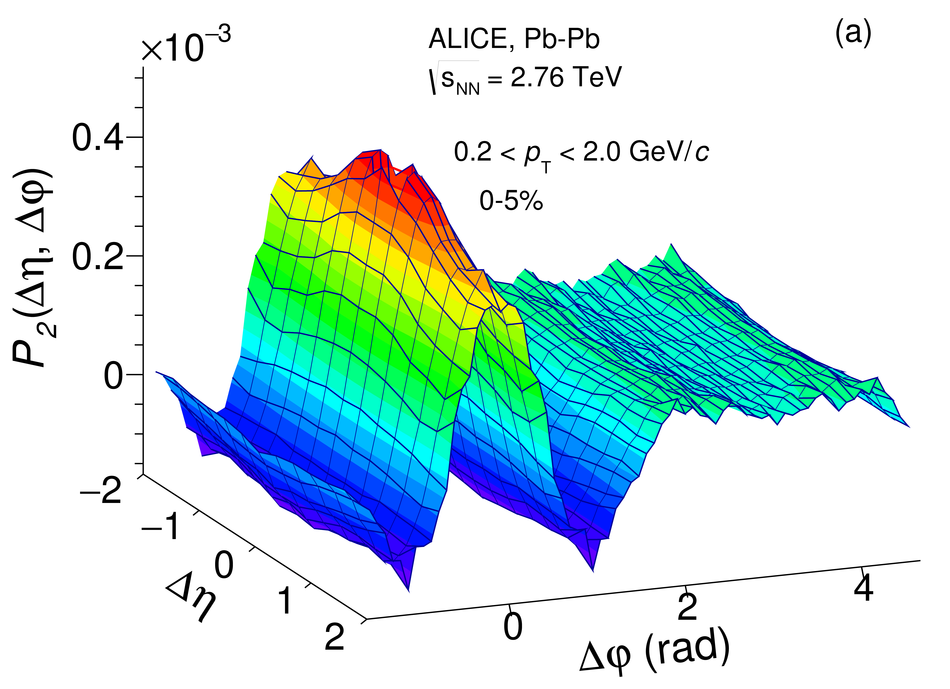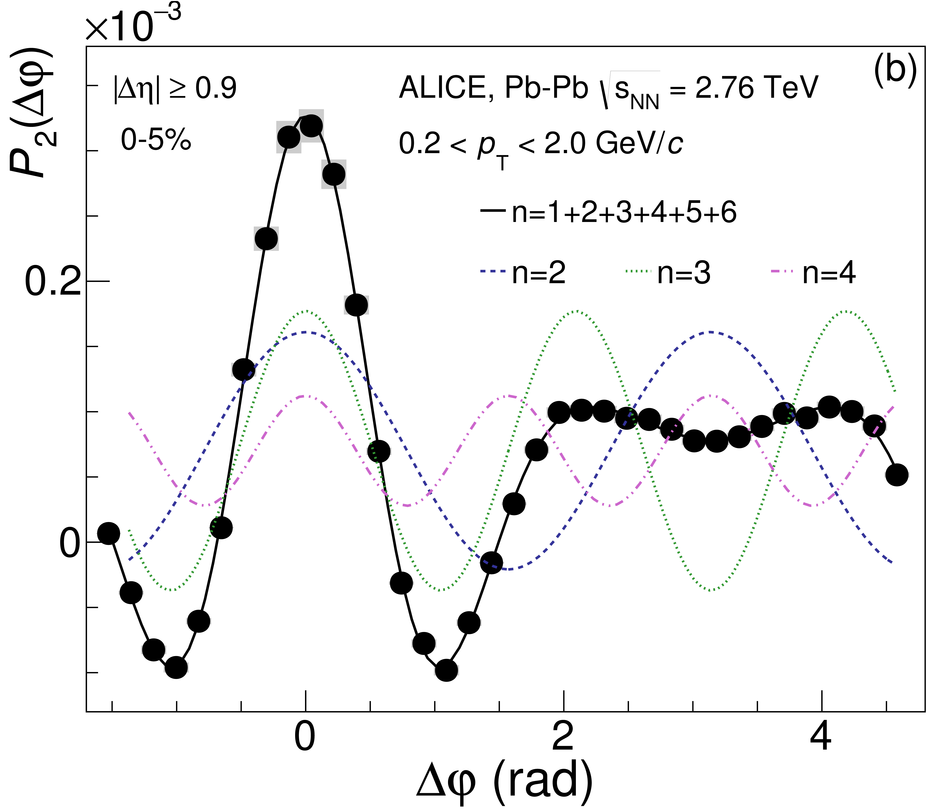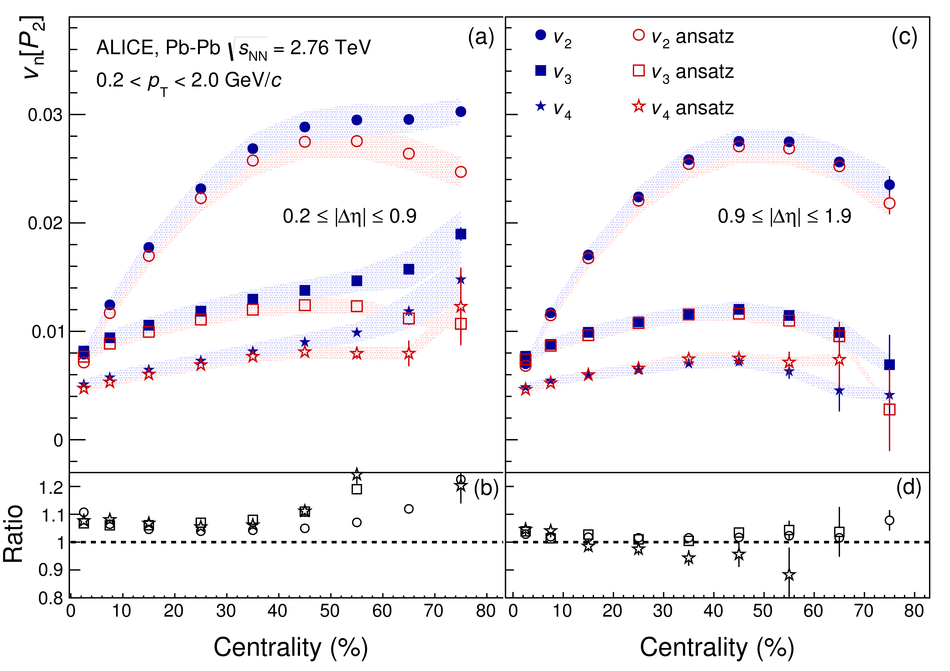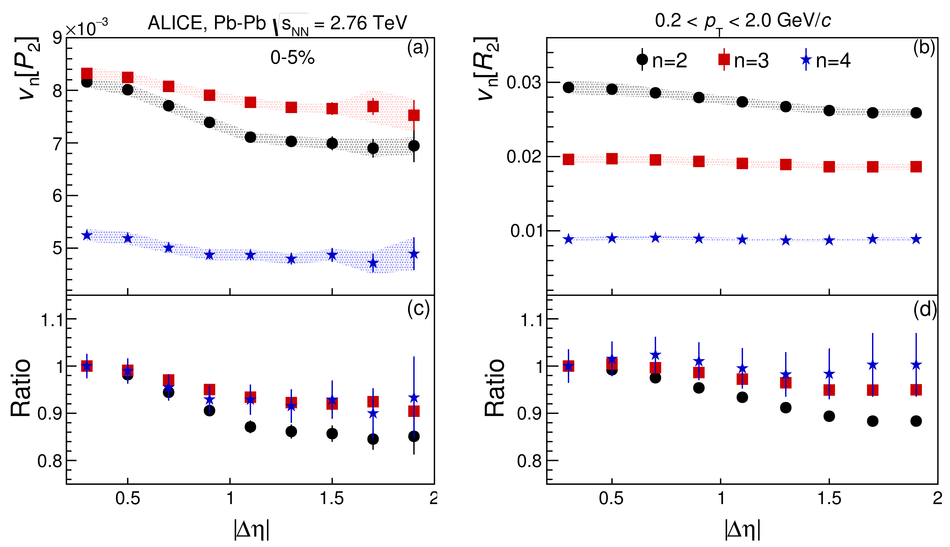We present the first measurement of the two-particle transverse momentum differential correlation function, $P_2\equiv\langle \Delta p_{\rm T} \Delta p_{\rm T} \rangle /\langle p_{\rm T} \rangle^2$, in Pb-Pb collisions at $\sqrt{s_{_{\rm NN}}} =$ 2.76 TeV. Results for $P_2$ are reported as a function of relative pseudorapidity ($\Delta \eta$) and azimuthal angle ($\Delta \varphi$) between two particles for different collision centralities. The $\Delta \phi$ dependence is found to be largely independent of $\Delta \eta$ for $|\Delta \eta| \geq$ 0.9. In 5% most central Pb-Pb collisions, the two-particle transverse momentum correlation function exhibits a clear double-hump structure around $\Delta \varphi = \pi$ (i.e., on the away side), which is not observed in number correlations in the same centrality range, and thus provides an indication of the dominance of triangular flow in this collision centrality. Fourier decompositions of $P_2$, studied as a function of collision centrality, show that correlations at $|\Delta \eta| \geq$ 0.9 can be well reproduced by a flow ansatz based on the notion that measured momentum correlations are strictly determined by the collective motion of the system.
PRL 118 (2017) 162302
HEP Data
e-Print: arXiv:1702.02665 | PDF | inSPIRE
CERN-EP-2017-021




